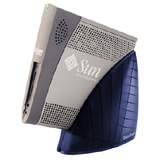Notebook - the thorn in the thin client's side


But one cat that the thin client approach has never quite skinned is the mobility cat. Until we have 24/7 access to a network (regardless of where we are... the beach, a plane, etc.) there are millions of people who won't be able to get work done when they need to get it done if all they have is a thin client device. And that number is on the rise as more and more employers offer or require that their employees work from locations other than their offices or cubicles. For this reason, notebook computers and increasingly, PDAs -- both of which are intelligent devices with local storage -- continue to gain ground as the preferences of end-users. I was reminded of this fact by a recent news story that marked an important milestone (one that thin-clients will probably never reach).
According to a recent study, May 2005 marks the first month in history during which more notebooks were sold than desktops. That trend was obviously helped along by another trend -- that of home office users establishing a preference for notebooks over desktops. Uh, doh. Given how just about everybody has a WiFi access point in their homes these days, what would you want? A desktop that you have to drag around the house from your office to the living room (if you want to catch some TV) to your bed? Or, a notebook? For more than three years, I've been recommending against the purchase of desktop computers. In fact, outside of my son's tricked-out Alienware gaming system (which, he laments, he can't take very easily take it to tournaments), I can't remember the last time I touched a desktop system.